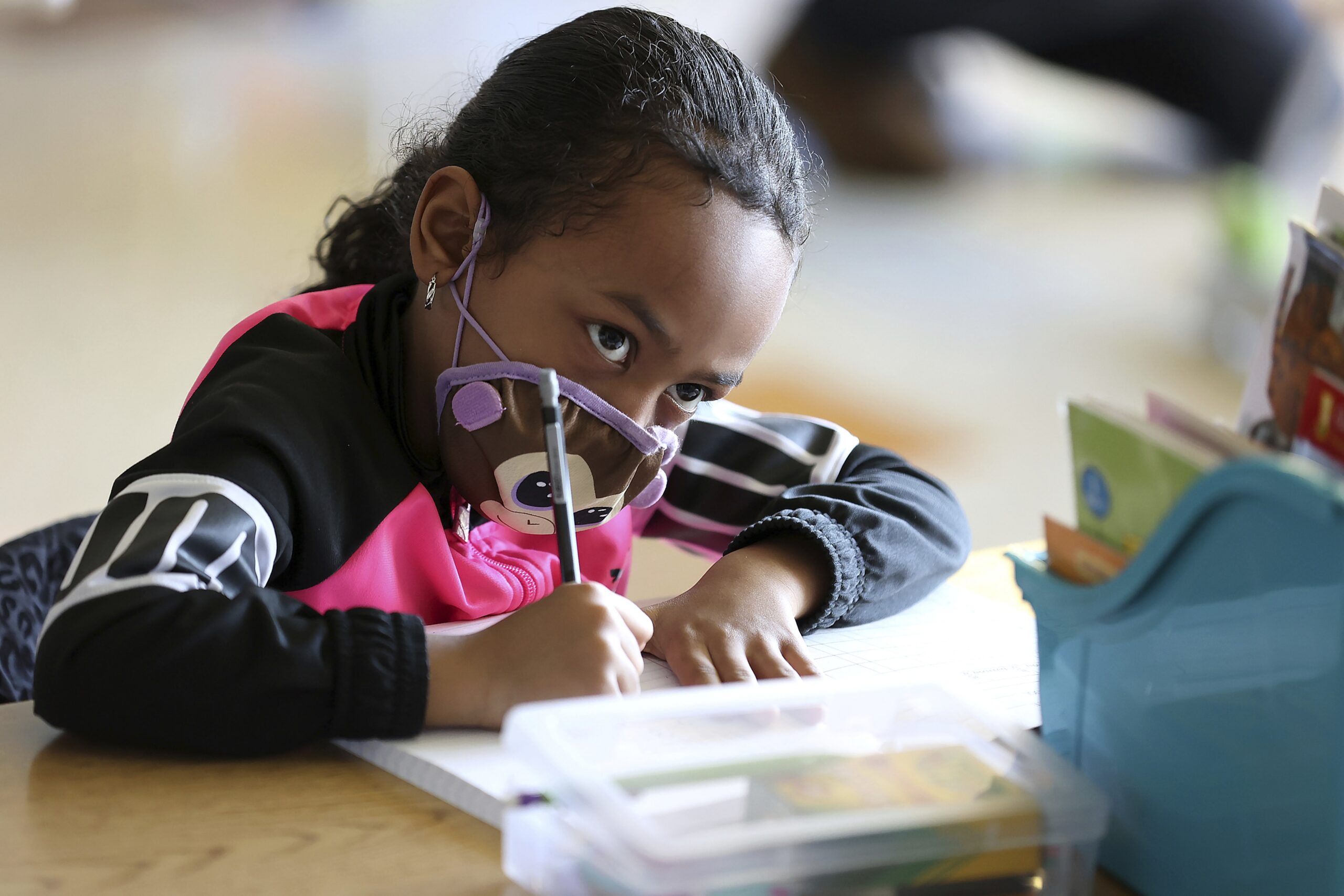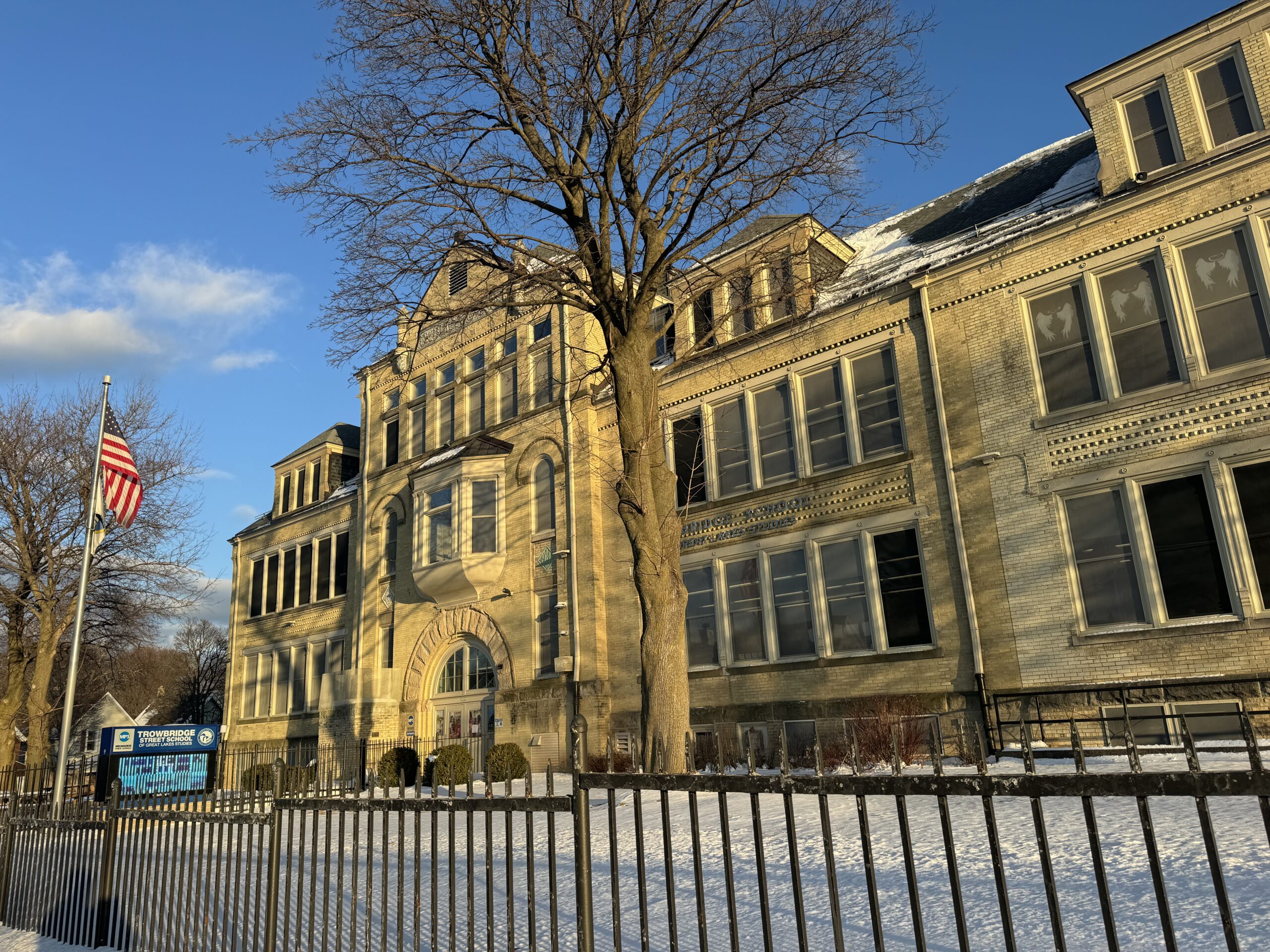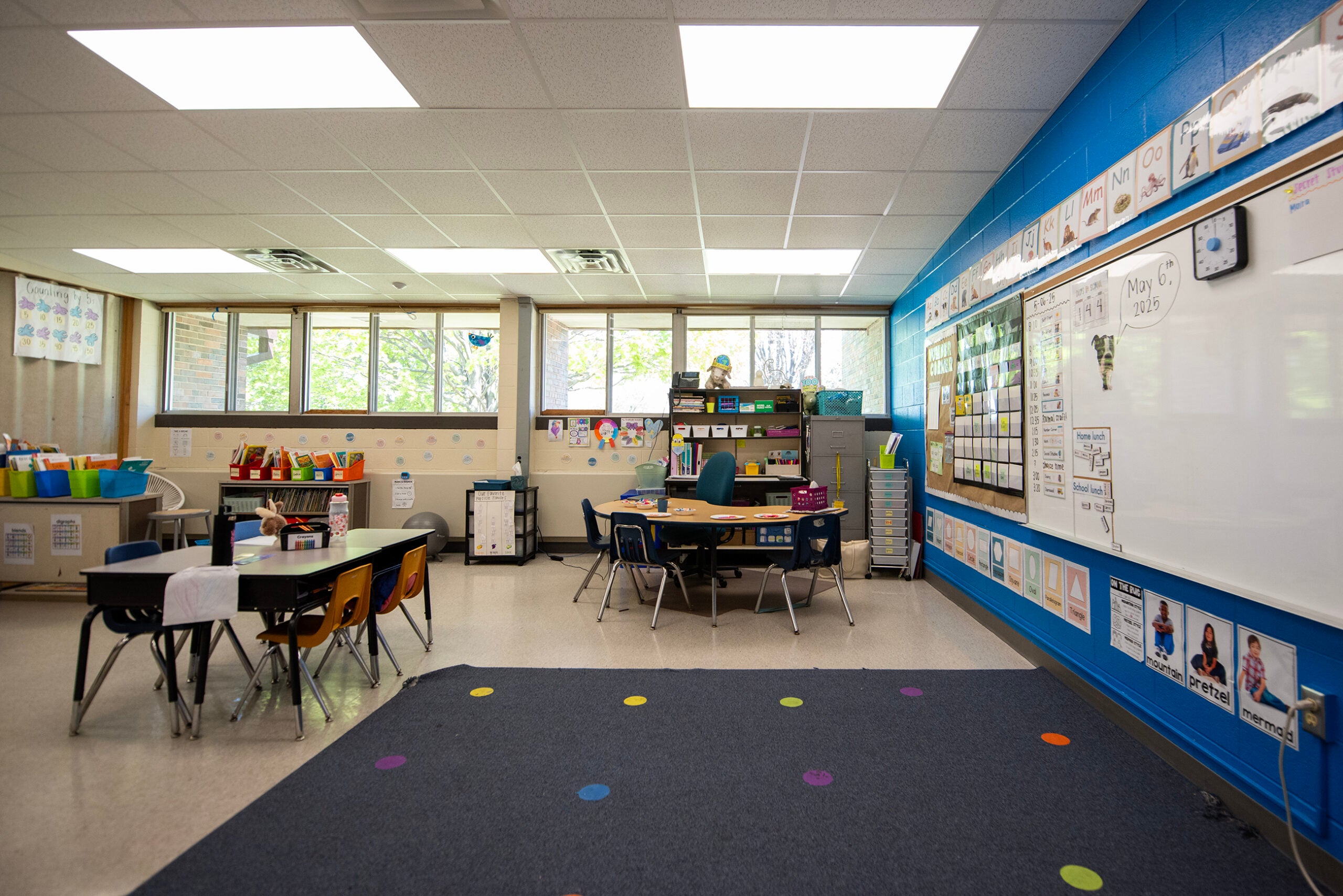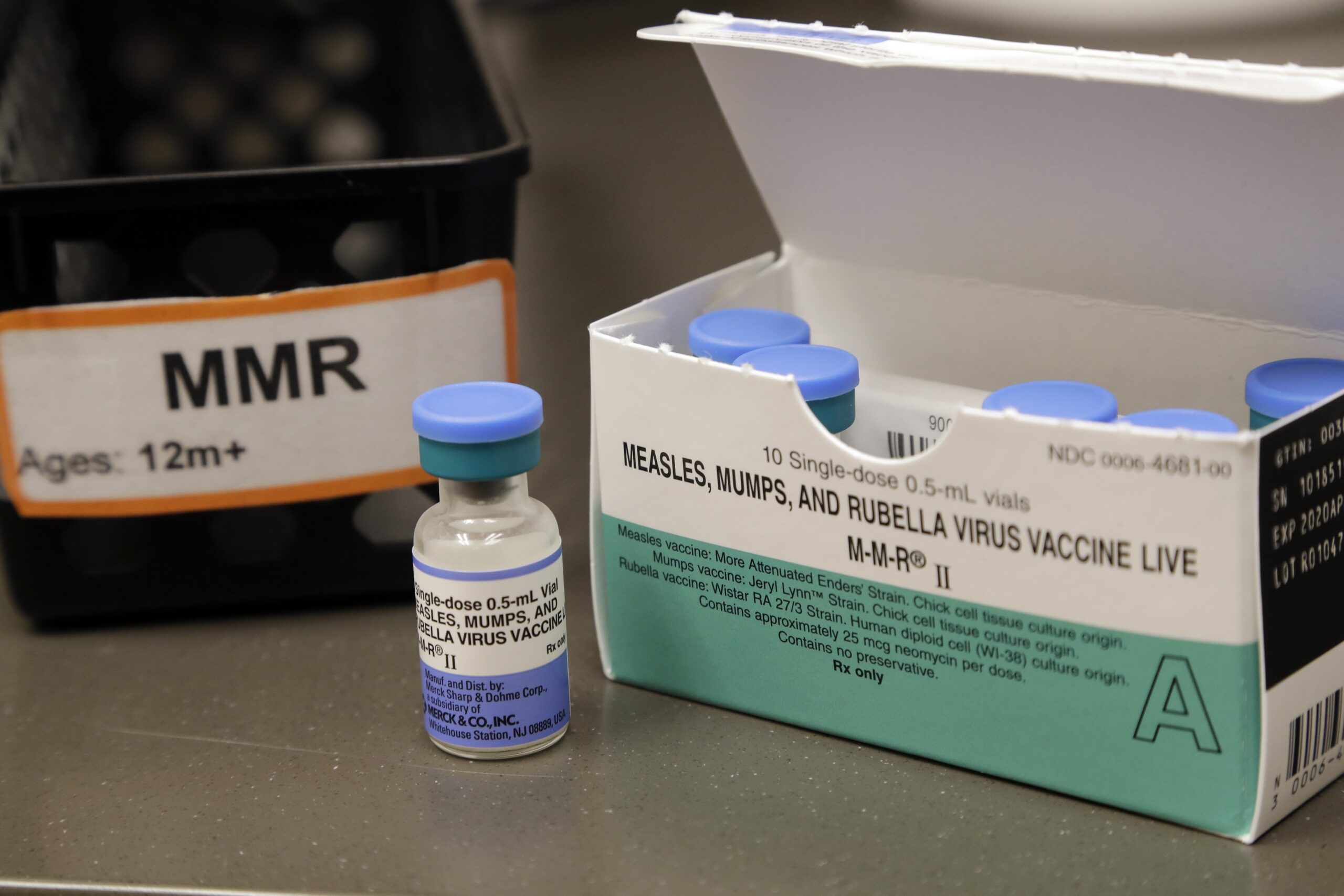When Landon Albert, a seventh-grader in the Mequon-Thiensville School District, heard that his mom was planning to testify at the school board’s Monday night meeting to determine whether the schools would keep requiring masks, he told her he wanted to chime in, too.
Landon, 13, said he’s worried about his family members — he has siblings ages 6, 8 and 11 who aren’t yet eligible for a COVID-19 vaccine, and while he had his first dose last week, he’s still weeks away from being fully vaccinated.
“I don’t like wearing masks either, but I’d rather be safe, and it’s either wearing masks or getting the vaccine. But some people don’t want to get it, and they’re the same people who don’t want to wear their masks,” he told WPR.
News with a little more humanity
WPR’s “Wisconsin Today” newsletter keeps you connected to the state you love without feeling overwhelmed. No paywall. No agenda. No corporate filter.
Landon and both of his parents testified in favor of the Mequon-Thiensville school district’s mask requirement. His mom, a family nurse practitioner, said she was frustrated with the politicization of masking.
“I feel like we’re getting so much closer, we’re doing very well in the pandemic, but we also know that our vaccination rates are going down a little bit, and we’re not quite at that level where the public health experts say we need to be to get that herd immunity,” she said. “It’s a public health issue, it’s not about taking away people’s rights, it’s protecting others.”
The board voted to keep its mask mandate in place through the end of the school year, over some parents’ objections.
Some school districts dropped their mask mandates back in April, after the Wisconsin Supreme Court struck down the statewide mask mandate. Others kept masks for day-to-day school functions, but were weighing mask-optional milestones like graduation and prom.
Last week, the Centers for Disease Control and Prevention dropped its masking recommendation for fully vaccinated individuals, which has led municipalities around Wisconsin to follow suit. However, only one COVID-19 vaccine, Pfizer-BioNTech, is approved for use in people under age 18, and that approval only extends down to age 12.
Because many students can’t yet be vaccinated, and because there’s so little time left in the year — many administrators said they don’t see much point in reversing course now.
“We only have so few days left in the school year, if we disrupt the apple cart for the last few days of school, it’s going to get kids off their routine,” said David Dyb, superintendent of the Clintonville school district. “We still have positive cases in our district, and kids are not vaccinated, so the board just felt that they’re going to stay with the indoor masking policy we’ve had since early in the year.”
Clintonville students are now allowed to take their masks off outside, though. Dyb said the district is also letting seniors remove their masks to walk across the stage at graduation — which, he said, will be possible by keeping the mask mandate in place for classes.
“We’re doing everything we can to still maintain that safe environment until the end of the school year,” he said. “I wouldn’t want to be that administrator who says to a parent or a senior, ‘I’m sorry, you were exposed, you can’t walk at graduation.’”
Other school districts, though, have made masks optional for some or all of their students.
The Palmyra-Eagle School District in southeastern Wisconsin voted last week to make masks recommended, rather than required, beginning May 24. In the northeastern part of the state, districts including White Lake and Wabeno have gone mask-optional. The state’s two largest districts, Madison and Milwaukee, did not respond to questions about their masking plans, but haven’t indicated they plan to relax mask requirements. The La Crosse Tribune reports Derrick Van Orden, a Republican candidate for Wisconsin’s 3rd Congressional District, has been working with groups of parents in western and southwestern Wisconsin to push back against their school districts’ mask requirements. The May 10t meeting of the Gale-Ettrick-Trempeleau school board was abruptly adjourned after a standoff between parents protesting the mask requirement and school board members.
Breanne Kanak, an art teacher in Wabeno, said she was one of about five people wearing a mask when she walked into the elementary school Tuesday morning — the Wabeno board made masks optional Monday night. Kanak has been vaccinated for months, but said she tends to get sick at the end of the year as she gets particularly tired and burnt out, so she’s keeping the mask on. She no longer has to enforce mask-wearing in her classrooms, but she said her administration has asked teachers to stick to social distancing guidelines.
“After wearing a mask all day, every single day this year, and then being told, ‘You know, you can if you want to, it’s not a big deal if you don’t now, and you don’t have to really mandate it,’ it’s just like — wait, what?” she said.
In her classes that have too many kids to keep the recommended distance, Kanak said she did ask her students to continue to mask, and students complied, some reluctantly. In her high school classes, which are smaller, she said her students willingly spread out so they wouldn’t have to mask.
The guidance issued by the state Department of Public Instruction last summer recommended masking requirements, in addition to other social distancing and cleaning measures, in order for schools to safely teach students in person. Consequently, many schools wrote mask requirements into their COVID-19 reopening plans that were separate from any requirements at their city, county or state level. With vaccine trials ongoing for younger children, it’s not clear whether the state will recommend similar policies for next school year, or how districts will approach disease-mitigation policies amid slowing reports of positive cases and growing vaccination rates around the state.
Epidemiologists specializing in the spread of illness among children noted that because of COVID-19 mitigation strategies, reports of other common childhood illnesses like strep throat and the seasonal flu were down dramatically — but they acknowledged that the widespread adoption of some of those strategies, including masking, isn’t likely to stick around after COVID-19 is under control.
Wisconsin Public Radio, © Copyright 2025, Board of Regents of the University of Wisconsin System and Wisconsin Educational Communications Board.







